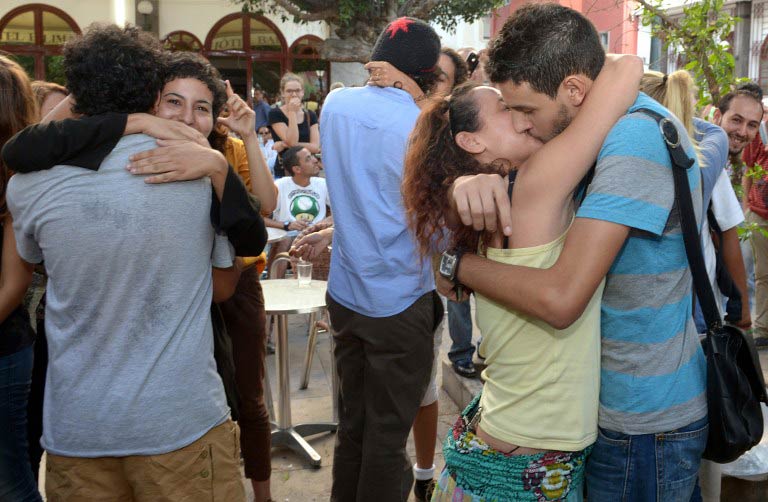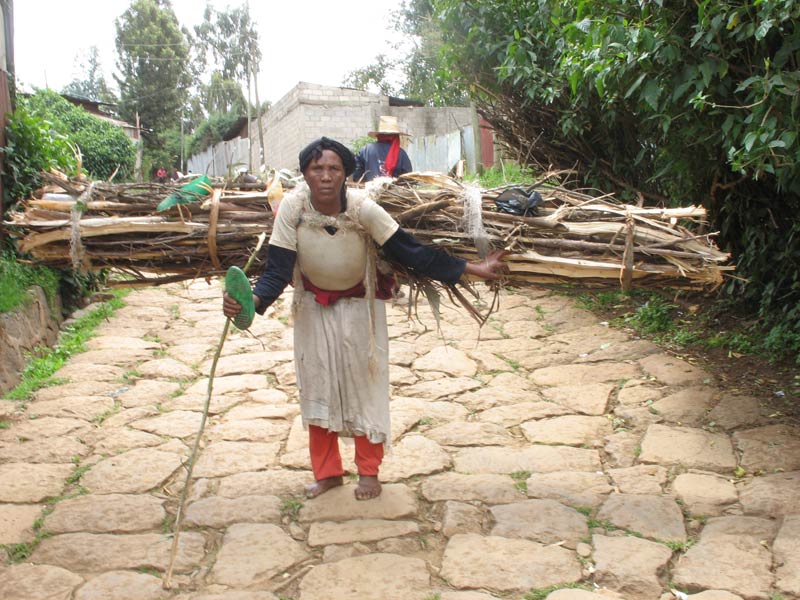Ask an African man what he thinks about feminists. Go ahead, and record their answers so you can email it to me later. I like a good laugh to start my mornings. If he is like 90% of the African men I know, his answer will be around the lines of, “You mean those white women who don’t like to cook?” or, “Those single women who can’t have babies?” or my personal favourite, “You mean LESBIANS?”.
Feminism, as many of us daughters of Africa know, is taboo on the continent. I would define feminism as a woman who takes gender seriously and addresses discrepancies between the sexes throughout her everyday life. She is a woman who will not conform or adjust her beliefs for the sake of a man’s (or society’s) comfort. Still, throughout Africa our brothers and sisters tie feminism to western voodoo, a type of evil cult that tells African women it is okay to be unmarried, focused on your career and not on procreation, or that the institution of patriarchy in Africa may actually be – shocker – detrimental.
So imagine the struggle of being a self-proclaimed feminist, raised and educated in the US, now living back on the continent, trying to date African men. The struggle has been real. It seems as though African men on the continent, even those who’ve returned from university or work abroad, have an image of their perfect woman, and she is definitely not a feminist. I’d say she’s more of a maid. Let me explain. First, every African man wants a cook, like his mama. Meaning girls, be ready to chip that manicure-peeling cassava and you better pick up his plate when dinner is done. And how can you expect a grown man to dish his own rice? Don’t be foolish now! Next, he wants a personal assistant. A woman that will check on his family, make sure his mom has all her prescriptions, remember his little sister’s birthday and ensure that his favourite suits are ready for that business trip the next week. You know, the usual tasks we women went to university for. Finally, he wants a nurturer, a woman ready to become a mother as soon as possible. African men want kids, usually lots of them. They want a woman who will take pride in bearing multiple children, along with the breastfeeding, potty training, washing, burping and, in general, 24-hour babysitting.
Now, are the aforementioned tasks and attributes a sure sign of being anti-feminist? Not always, but sometimes I feel that when dating African men there is not too much room for compromise on the woman’s side. It’s all or nothing with African men. To say that you hate cooking, will be no one’s assistant for under $70 000 a year, or that you are not interested in being someone’s mother is romantic suicide on this continent. Many African men love “strong” women, but to be overly vocal about how sexism is negatively affecting women, for example, can turn you into a bra-burning radical that rejects traditional notions of marriage and doesn’t shave her legs. And what African man is supposed to take this kind of woman home to meet his African mother? Again, don’t be foolish!
Even me, an opinionated over-analyser who quotes Pumla Gqola on my Tumblr blog, would get nervous during a first date with a tall, dark and handsome African man who my mother would call “ozzband” [husband] material”. As the two of us would sit there getting to know each other, he’d hit me with the boom early on and say something like, “I mean the first thing I look for in a woman is her cooking skills, I like traditional women you know?”. I would cringe, smile and respond, “Yeah, cooking is important, having a traditional marriage is not the worst thing in the world.” But the whole time I’d be thinking, “What the hell Stephanie, there’s nothing traditional about you besides the fact that you like to eat foufou and sauce with your hands.” But because African men don’t do feminists, I always felt the need to dumb my ideals down a bit as to not scare these brothas away.
African men have set and continue to set the dating tone on this continent, and since many still want that cook/assistant/nurturer/superwoman, it has left us self-proclaimed feminists in a box, a very lonely box where we watch as friends get married and we end up being that guest sitting in the back discussing bell hooks’ Feminist Theory with no one in particular.
So I ask the African men out there: Is it true? If a woman walked up to you wearing a T-shirt with the words “African Feminist” on it, would you be intrigued or intimidated? Curious or concerned? Do you not do feminists? Or am I over-generalising?
Stephanie A. Kimou was born in Abidjan, Côte d’Ivoire and raised in Washington, DC. She is a blogger by night at A Black Girl in the World and a programme manager at a women’s social enterprise in Tanzania by day. She holds a masters degree in international affairs from Georgetown University in DC, and has studied at the African Gender Institute in Cape Town and the University of Paris in France. Her mother has told her she has two years to get married, or else. Writing is the way she deals with this stress.




